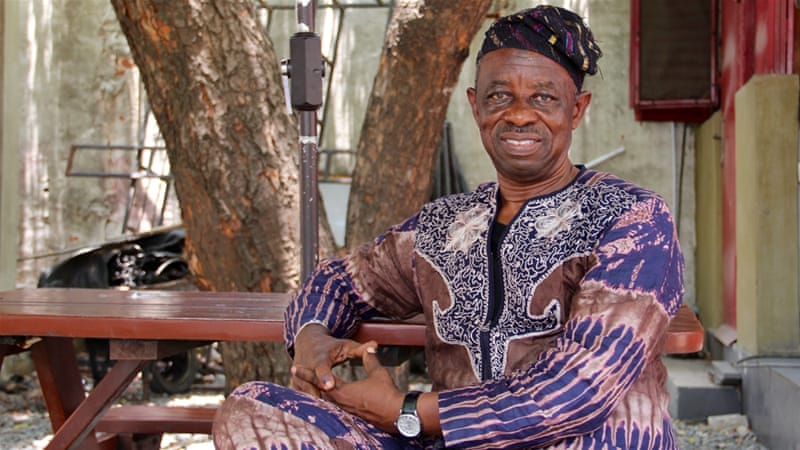Veteran actress Bimbo Akintola has opened up about the realities actresses face in the Nigerian film industry, particularly with regard to wealth and public perceptions.
She said many people often misunderstand the financial situation of actresses.
“A lot of actresses, maybe what it is, is that people can’t understand where the money is coming from. Because we all know what the industry is about; we all know how much people earn.
“We all know how much you can earn, except you have money from home, maybe you are from a rich family,” she said.
“Then, some of the lifestyle that we see, especially on social media, can be real. And if it is real, where is it from? Do you understand?”
Speaking about how people often assume that all actresses are wealthy, she recalled: “People come up to me and say, ‘Oh, look at actresses, they are very rich.’ I say, ‘Me, I don’t know about that one. I’m not rich.’ When you see them, ask them what they do. I say it all the time, I say, ask them what they do.”
Akintola also spoke on the limitations in the income stream for actresses.
She said: “We know how much they sell a film now; it doesn’t pass 1 million, is it not 4 million naira or 5 million naira? That’s how much a whole film is now. We know how much they sell for Africa Magic.
“Africa Magic just went back to 4 million; they went down to 1.2 million — a whole film with everybody, plus crew, plus everybody. We know how much it is. And then, yes, there is also Netflix, and it’s international, so obviously the money is also bigger.”
She reflected on how the earnings from cinema films aren’t as high as many believe.
“But we still know what people earn for cinema films. We started with cinema before Netflix, and then that boosted people. We also know how much is made from those films.
“So, a lot of actresses that I see, I don’t know if it’s from home, if they are from very rich homes, or if there is other business that they are doing, because there has to be.”
Akintola touched on the influence of politicians and rumours of actresses being involved with them.
“We’ve also heard stories of actresses being wanted by politicians, actresses dating politicians, and actresses doing stuff for politicians and getting paid for it. So we’ve all heard that; we all know that it’s happening; things like that do happen.”
She, however, clarified that this is not limited to actresses alone but is a wider societal issue.
“But it’s not just actresses that do that; women in Nigeria do that because the poverty level is pretty high, isn’t it? So, a lot of women are on the level of ‘whatever it is I can do to sustain myself and my family, I’m going to do it.’”
The disparity between producers and actors’ earnings also came up.
“I know producers make more money than actors. Me and you know that actors don’t make as much as producers. When we first started, the producers were the owners of everything; we were just tools for them to use,” she explained.
She highlighted the lack of unity in the industry and its consequences.
“And one of the biggest problems we have is the fact that there is no unity amongst all of us. There is no unity in Nigeria; we are a reflection of the industry.
“So, if we, as Nigerians, cannot even leave our ethnic bias in the background and come together as one, it’s the same thing that is happening in the industry, and it’s so shameful.”
Akintola contrasted this with the music industry, where there seems to be more solidarity.
“Because look at the music industry; those people are legit rich. Why? Because when they put a price, all group A is across the board. If this one is earning this amount, that one is earning the same. They are all on the same level.”
She highlighted how undercutting one another has hurt the industry.
“But in our industry, they call Bimbo, and Bimbo says, ‘Okay, give me 2 naira.’ And then someone will go behind and say, ‘I can do it for 1 naira,’ and the person will collect it and they will do it for 1 naira. We all know these things.”
Akintola believes that backgrounds play a role in people’s decisions.
“There are also women from different backgrounds. You know, the background that you came from also determines the sort of person that you are and the sort of things you are going to do.”
She acknowledged the realities of actresses dating rich men or politicians but said it’s common across many women in Nigeria.
“So, yes, I’ve heard about our actresses dating politicians or dating rich men or dating whatever, but no be 80 per cent of Nigerian girls that do that one.”
While some might not see anything wrong with this, Akintola expressed concern.
“Now, in this climate, I guess not for a lot of people. But for me, I think if you are married, there is a lot wrong with it. Then, if you are also single and it’s several people, there is a lot wrong with it.”
Beyond moral issues, she raised health concerns.
“Let’s talk about health. Let’s talk about the fact that you are opening yourself to all sorts. We all know that in Nigeria, when you are in a relationship, after you’ve done 6 or 8 months in a relationship, nobody is using condoms. Let’s be truthful.”
“I don’t want the young ones to think that’s the way to go. I want girls, because we are seeing it more and more, where girls are debasing themselves for pittance.
“I want girls to understand that they are so special and they have brains. It might be hard, but you can make it without a man,” she declared.
Crazeclown praised skit makers for expanding into music, movies.
Nigerian skit maker Emmanuel Ogonna Iwueke, popular as Crazeclown has expressed his excitement about the rapid growth of the skit-making industry, which he described as a significant force in the entertainment world.
In a recent interview with Hip TV, which was monitored by Per Second News, Crazeclown, reflected on how the industry has evolved over the years, gaining recognition and respect.
He recalled a time when the skit-making and content creation space were not taken seriously.
According to him, many people initially dismissed it as mere fun on social media without understanding the depth of effort involved.
“People used to look down on the content creation space, thinking it was just about having fun online,” Crazeclown explained.
However, Crazeclown noted that the industry’s perception has changed significantly, with skit-making becoming a vital part of the entertainment landscape.
He emphasised that producing quality skits requires a high level of creativity, intellectual effort, and dedication.
“Skit-making has grown into a serious industry that demands creativity, hard work, and intellectual effort,” he added.
He elaborated on the challenges faced by skit-makers, especially in maintaining consistency and staying relevant in a constantly evolving space.
“It takes a lot of time and consistency to keep evolving in this space,” Crazeclown said, highlighting the continuous effort required to create content that resonates with audiences.
In addition to skit-making, Crazeclown observed that many content creators are expanding into other areas of the entertainment industry.
“I’m seeing people who started with skits now doing music, acting in movies, and even hosting shows,” he remarked, applauding the versatility of skit-makers.
The Nigerian skit-making industry has seen remarkable growth, with creators leveraging their platforms to explore various entertainment genres. Crazeclown believes this transformation is a testament to the hard work and talent within the community.
Reflecting on his own journey, Crazeclown shared his pride in being part of this wave of creative individuals who are reshaping the narrative of online content creation.
He stressed that skit-making is no longer just a hobby but a full-fledged career path for many.
He expressed optimism for the future of skit-making, predicting even greater success for content creators as the industry continues to expand and evolve.























Leave a comment